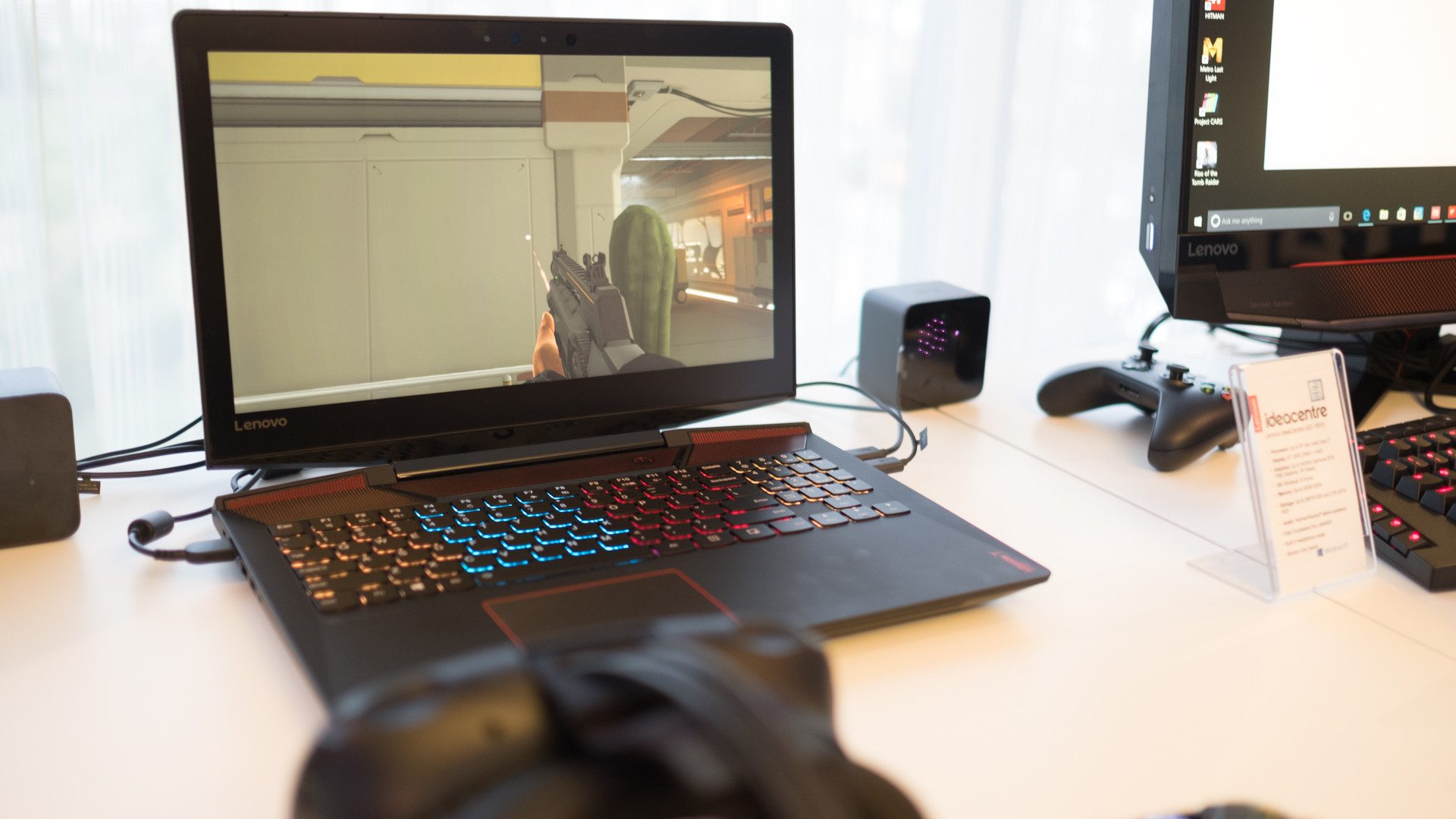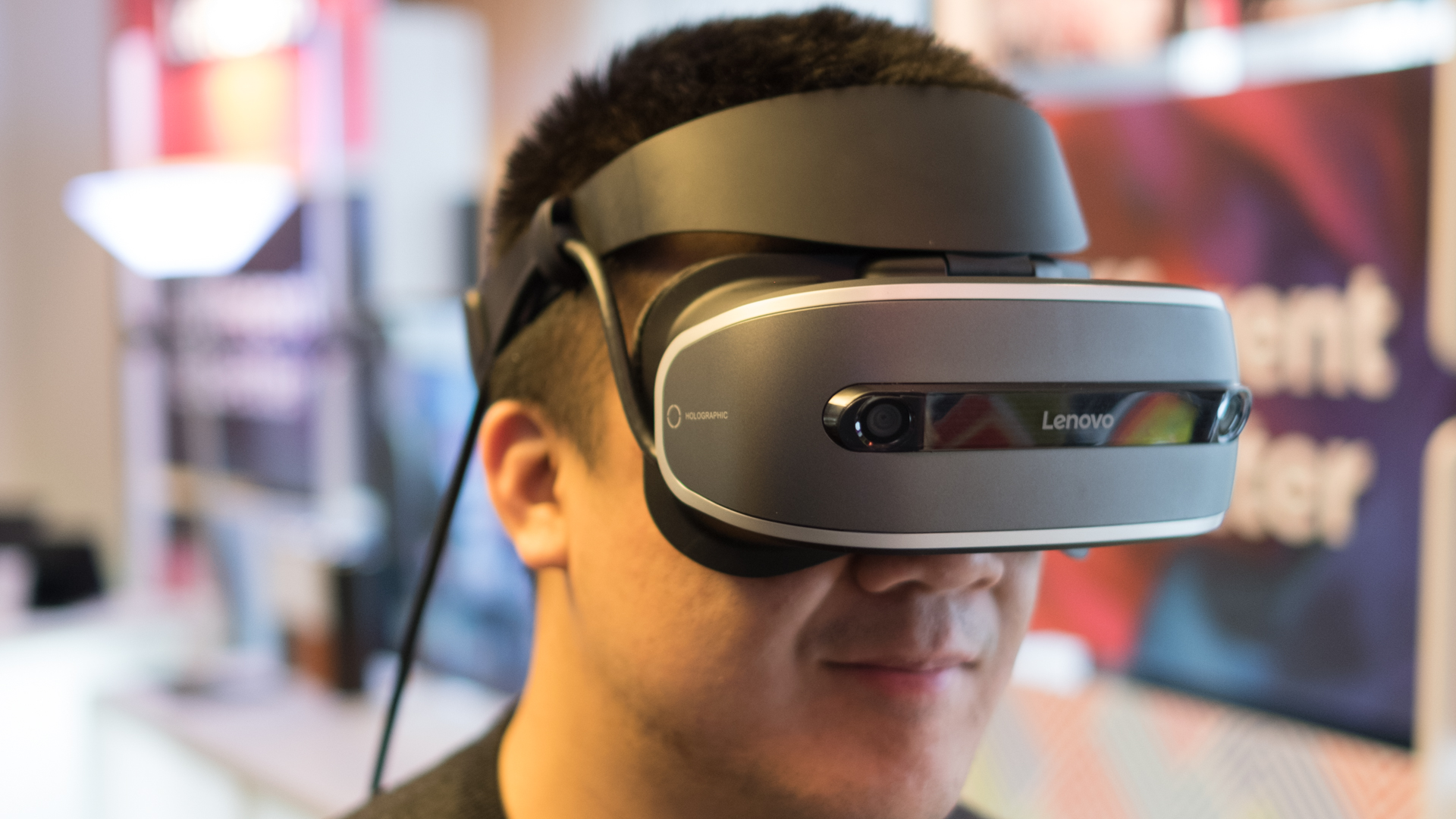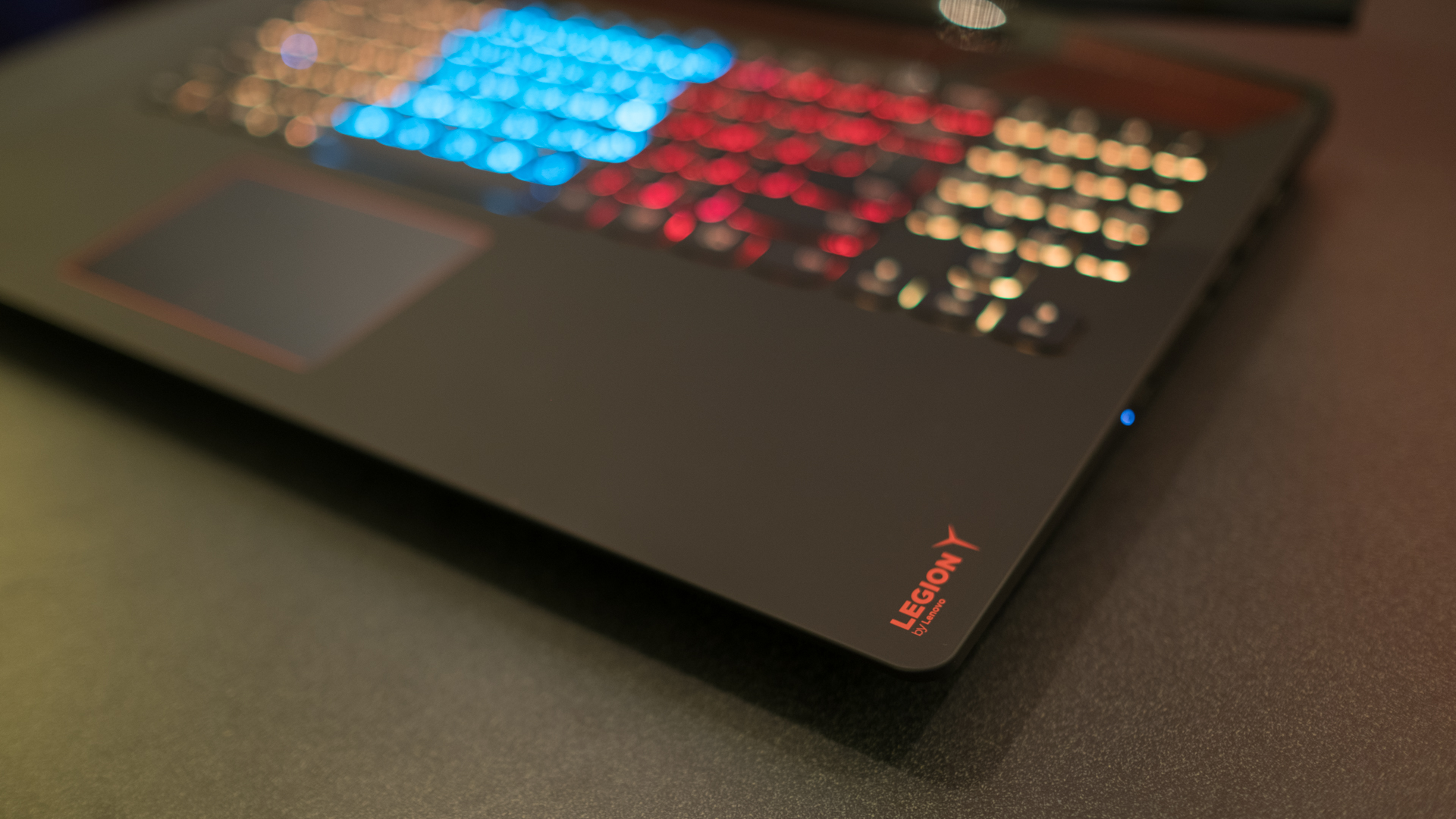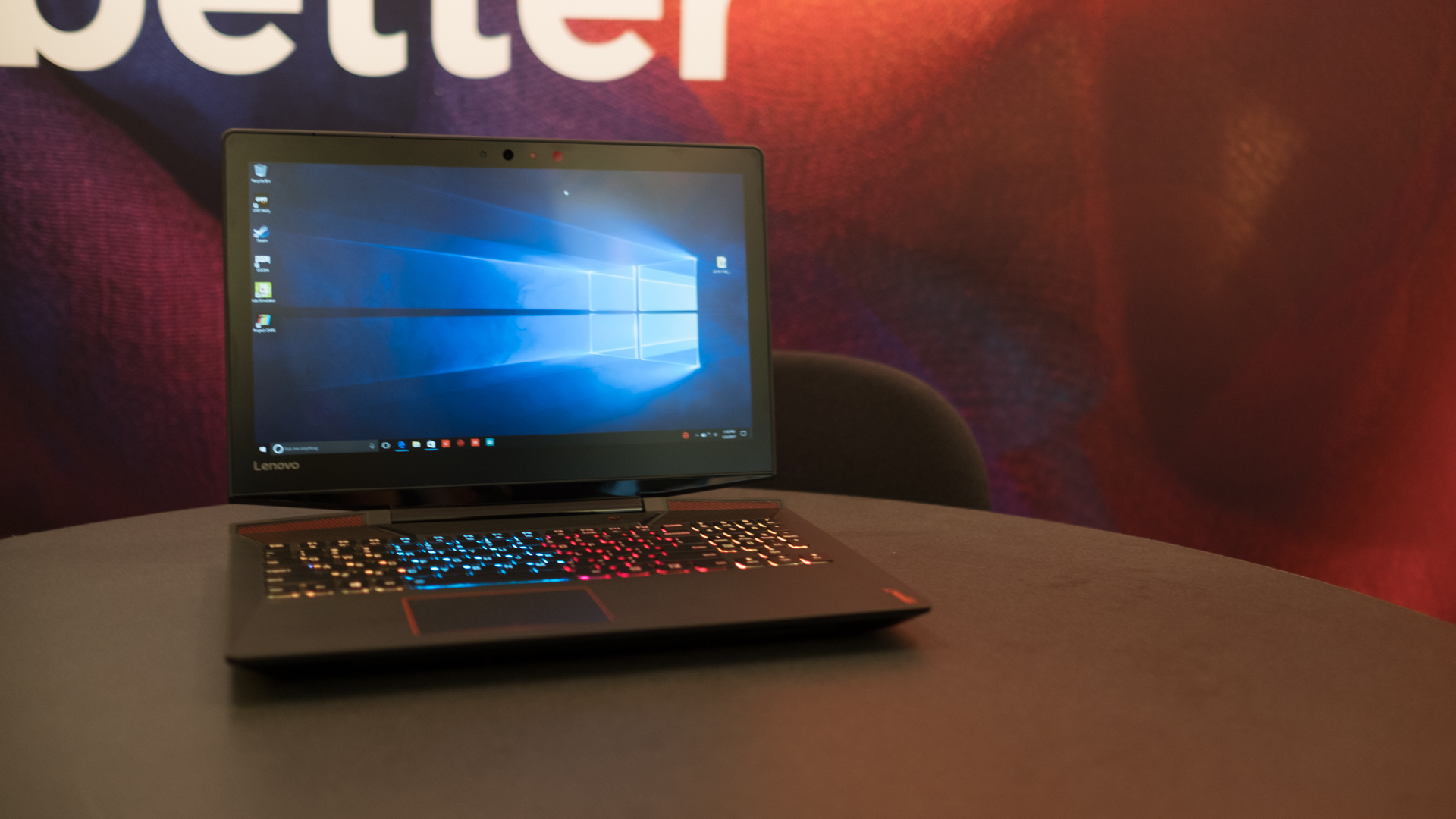Early Verdict
Sporting sharp looks and a unique focus on virtual reality experiences, the Lenovo Legion Y720 is a very alluring mid-range gaming laptop.
Pros
- +
Refined, thinner styling
- +
Affordable starting price
- +
Upscaling for VR functionality
Cons
- -
Plastic-y trackpad
- -
Display renders flat colors
Why you can trust TechRadar
Lenovo is taking its gaming laptop line to the next level with a very virtual reality-focused Legion 720
On top of ditching the old IdeaPad moniker used by the previous Y700 and Y70, Lenovo has given its 15.6-inch mobile gaming rig a complete internal refresh with Kaby Lake processors and Nvidia Pascal graphics to make this a VR ready machine – which coincidentally, Lenovo just doubled down on by teasing its own headset.

Getting back to the laptop, though, it retains much of the design of its predecessor with an all black and red color scheme. There are some slight differences with the Legion Y720 being slightly thinner and sharper.
The Legion 720 also adopts many of its design cues from Lenovo’s largest gaming laptop ever, the IdeaPad Y900, including the central hinge and an optional four-zone RGB keyboard.
Another interesting option you add to this 17-inch option is an integrated Xbox One Wireless receiver, saving you the trouble of plugging in Microsoft’s awkwardly large USB dongle.

However, before you get to the optional extras you’ll probably want to spec this rig out with the gaming components that matter. The Lenovo Legion Y720 can be configured with an Intel Core i7-7700HQ processors and Nvidia GTX 1060 graphics with 6GB of GDDR5 memory.
Other specs include an optional 4K display, up to 32GB of DDR4 RAM and a 2TB HDD or 1TB PCIe SSD, plus a beefy 60Whr battery promising up to 5 hours of battery life.
The build makes it an VR ready machine and Lenovo is making a hard push in this particular field. Lenovo’s new Entertainment Hub software comes bundled with the Legion Y720 and on top of gathering all your media and games together into one place, the program also enables to you to enjoy movie and games in virtual reality even if they haven’t been designed for it.

Lenovo explains, the Entertainment Hub essentially upscales media and packages it for a virtual reality experience. For example, starting up a movie would plant us into a faux-movie theater, in which we watched a virtual screen from the middle rows of an empty movie theater.
Alternatively, we were treated to playing Deux Ex: Mankind Divided in VR with full head tracking as a stand in for the right stick or mouse movements we would usually use to look around and aim a gun.

Of course, there are some obvious flaws in this converted experience. For one thing a traditional mouse or controller is a more more familiar control scheme and feels a lot less jerky than trying to keep your head still. Secondly, to “upscale” a game for VR, the Entertainment Hub essentially duplicates the picture at a slightly different angle and in the process ends up cropping out part of the frame.
Despite these shortcomings, Lenovo argues it wants to offer users more VR content and the ability to convert media and games users already have.

Early verdict
The Lenovo Legion Y720 looks to be a solid choice for a mid-range gaming laptop. While we’ve seen plenty of laptops break the bank for the best specs and performance, this 15.6-inch option starts at a refreshingly affordable $1,399 (about £1,140, AU$1,950) – and users on a tighter budget may want to consider the lower-end Legion Y520 that starts at $899 (about £735, AU$1,255), .
It’s Entertainment Hub also make this laptop a particularly strong if users are looking for a machine to power their first VR experiences. No other laptop offers this same feature, however, having only experienced two examples of the tech, we’ll have to see how big the library really can get before we give our unequivocal thumbs up on the Lenovo Legion Y720.
Kevin Lee was a former computing reporter at TechRadar. Kevin is now the SEO Updates Editor at IGN based in New York. He handles all of the best of tech buying guides while also dipping his hand in the entertainment and games evergreen content. Kevin has over eight years of experience in the tech and games publications with previous bylines at Polygon, PC World, and more. Outside of work, Kevin is major movie buff of cult and bad films. He also regularly plays flight & space sim and racing games. IRL he's a fan of archery, axe throwing, and board games.
What is a hands on review?
Hands on reviews' are a journalist's first impressions of a piece of kit based on spending some time with it. It may be just a few moments, or a few hours. The important thing is we have been able to play with it ourselves and can give you some sense of what it's like to use, even if it's only an embryonic view. For more information, see TechRadar's Reviews Guarantee.

